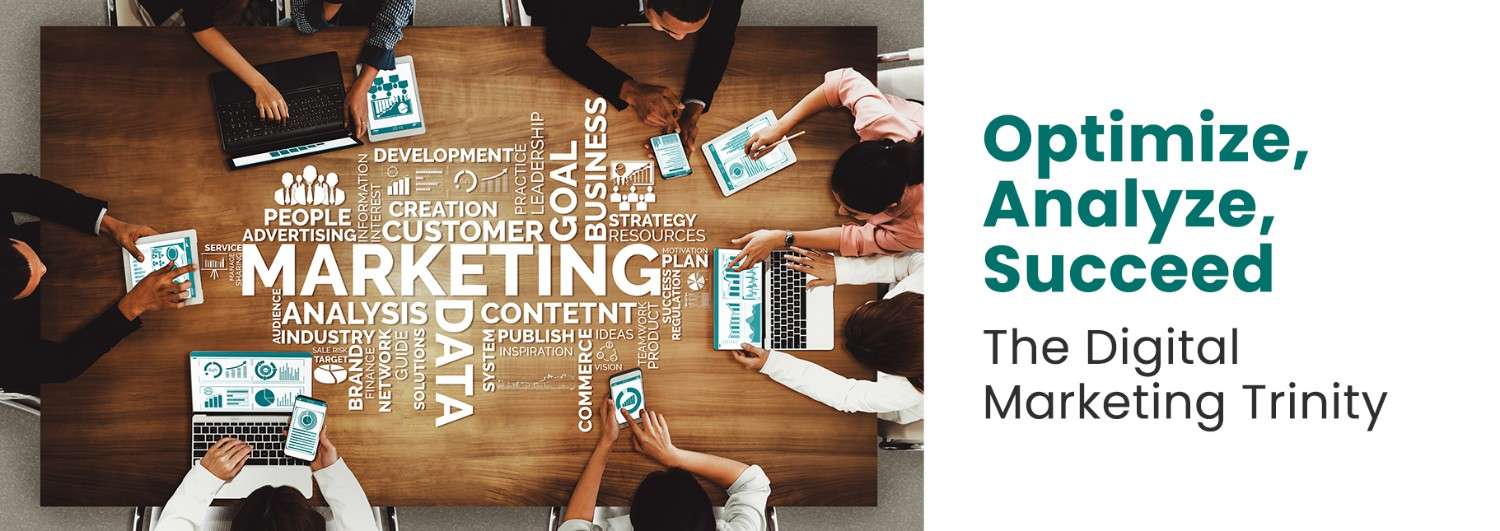As we approach 2025, digital marketing continues to evolve at a rapid pace, influenced by emerging technologies, shifting consumer behavior, and new platforms. In an increasingly competitive landscape, businesses need to craft a digital marketing strategy that not only reflects current trends but also anticipates the future.
A well-thought-out strategy can help brands stay ahead of the curve, engage their audience effectively, and drive meaningful results. This article will guide you through the essential steps to create a digital marketing strategy that is poised for success in 2025.
What is a Digital Marketing Strategy?
A digital marketing strategy is a comprehensive plan that outlines how a business will promote its products, services, or brand through digital channels. It includes various elements such as search engine optimization (SEO), content marketing, social media marketing, email marketing, pay-per-click (PPC) advertising, and more. The goal is to reach the right audience, at the right time, with the right message, ultimately driving conversions and growing the business.
In 2025, a successful digital marketing strategy will need to go beyond traditional tactics and incorporate newer technologies, personalized experiences, and data-driven insights to stay relevant and effective.
Key Elements of a Winning Digital Marketing Strategy for 2025
1. Embrace Artificial Intelligence and Automation
One of the most significant trends shaping the future of digital marketing is the growing use of artificial intelligence (AI) and automation. From AI-powered chatbots to automated email campaigns and predictive analytics, AI can help businesses streamline their marketing efforts and provide a more personalized experience for their audience.
By 2025, AI will become an essential part of any digital marketing strategy. Marketers will rely on AI tools to optimize content delivery, analyze consumer behavior, and predict trends. For example, AI can help businesses deliver hyper-targeted ads by analyzing user preferences and purchase histories, while chatbots can provide real-time customer service, increasing engagement and satisfaction.
2. Focus on Personalization
Personalization will be a cornerstone of successful digital marketing strategies in 2025. Consumers increasingly expect tailored experiences, and businesses that can deliver relevant content, offers, and messaging will have a significant advantage.
By leveraging data from customer interactions, social media, and online behavior, marketers can create highly personalized experiences across multiple channels. This could include personalized product recommendations, dynamic website content, or customized email marketing campaigns. In 2025, brands that personalize their digital interactions will likely see higher engagement, increased conversions, and better customer retention.
3. Invest in Video and Interactive Content
As consumers continue to favor visual and interactive content, video will play an even larger role in digital marketing strategies in 2025. Video content has proven to be one of the most engaging and effective ways to communicate with an audience, whether through social media, email, or websites.
Interactive content, such as quizzes, polls, and augmented reality (AR) experiences, will also rise in popularity. By offering consumers a chance to actively engage with the brand, businesses can create memorable experiences that foster stronger connections. In 2025, a digital marketing strategy that incorporates video and interactive content will be essential for capturing attention and driving user engagement.
4. Optimize for Voice Search and Smart Devices
With the growing use of voice assistants like Amazon’s Alexa, Google Assistant, and Apple’s Siri, optimizing your digital marketing strategy for voice search is becoming increasingly important. By 2025, voice search is expected to be a significant portion of all searches conducted online, making it essential for businesses to optimize their content for voice queries.
In addition, the proliferation of smart devices, such as smart speakers, wearables, and IoT-enabled products, presents opportunities for brands to engage with consumers in new and innovative ways. Ensuring that your digital marketing strategy is compatible with these devices will be key to staying ahead of the competition in 2025.
5. Harness the Power of Social Media Marketing
Social media will continue to be a dominant force in digital marketing in 2025. However, the platforms and strategies brands use to engage their audiences are evolving. While Facebook and Instagram remain powerful tools, newer platforms like TikTok, Clubhouse, and emerging video-based networks are becoming essential for reaching younger, more diverse audiences.
A successful digital marketing strategy in 2025 will involve a dynamic mix of platforms that align with the target audience’s preferences. It’s not just about having a presence on social media but about leveraging each platform’s unique features—such as TikTok’s short-form video content or Instagram’s Stories and Reels—to create engaging, shareable content.
Brands will also need to embrace social commerce, where shopping experiences are integrated directly into social media platforms. By 2025, the line between content creation and e-commerce will continue to blur, and marketers will need to create seamless, frictionless purchasing experiences within their social media campaigns.
6. Data-Driven Decision Making
As digital marketing continues to evolve, data will become an even more integral part of any digital marketing strategy. The ability to collect, analyze, and use data effectively will help businesses understand their customers better and optimize their marketing efforts.
In 2025, marketers will have access to even more sophisticated tools for tracking and analyzing consumer behavior. From Google Analytics to customer relationship management (CRM) systems, data will provide valuable insights into customer preferences, online activity, and conversion paths. By using these insights, businesses can fine-tune their strategies, improve targeting, and make more informed decisions.
7. Maintain a Mobile-First Approach
With mobile traffic accounting for a significant portion of all web traffic, ensuring that your digital marketing strategy is mobile-friendly is no longer optional. In 2025, this will be even more critical as mobile commerce continues to rise.
A mobile-first approach means creating content, websites, and ads that are optimized for mobile devices. This includes having responsive web design, fast-loading pages, and mobile-friendly ads. By optimizing for mobile, businesses can ensure that they meet the expectations of today’s on-the-go consumers, improving user experience and increasing conversions.
8. Leverage Influencer Marketing
Influencer marketing has already proven to be a highly effective strategy for engaging with consumers, and by 2025, its influence will only grow. Consumers trust influencers, and their recommendations can significantly impact purchasing decisions. A digital marketing strategy in 2025 that integrates influencer partnerships will help brands build credibility and reach new audiences.
Micro and nano influencers, who have smaller but highly engaged followings, will continue to be a valuable asset for brands looking to create authentic, relatable campaigns. By collaborating with influencers who share similar values and appeal to the target audience, brands can create content that feels organic and trustworthy.
Crafting Your Digital Marketing Strategy for 2025
To craft a digital marketing strategy for 2025, follow these essential steps:
- Understand your audience: Use data to gain insights into consumer preferences, behavior, and demographics. Tailor your strategy to meet their needs and expectations.
- Set clear goals: Define your marketing objectives, whether it’s increasing brand awareness, driving traffic, or boosting sales. Set measurable KPIs to track your progress.
- Choose the right channels: Focus on the platforms and marketing tactics that align with your audience. Consider AI, video content, voice search optimization, and social media engagement.
- Create personalized content: Use data to craft personalized messages that resonate with your target audience. Offer valuable, relevant content that drives engagement.
- Test and optimize: Continuously monitor and analyze your campaigns. Use A/B testing and adjust your strategy to improve results.
Conclusion
As we look to 2025, digital marketing strategies will need to evolve to keep up with emerging technologies, consumer expectations, and new platforms. By embracing AI, personalization, video, voice search optimization, and data-driven decision-making, businesses can create a winning strategy that not only drives engagement but also delivers long-term success. In the fast-paced digital landscape of 2025, those who innovate and stay ahead of the curve will reap the rewards of a well-executed digital marketing strategy.







